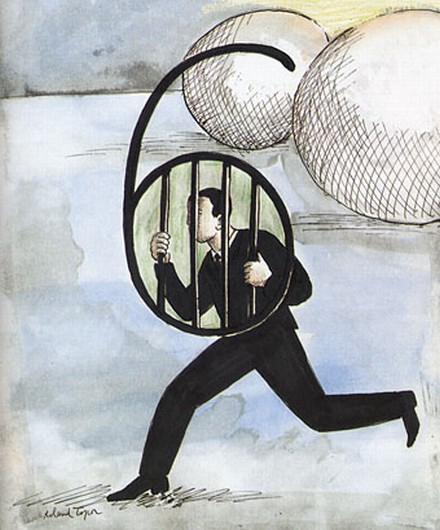
One of the fundamental parts of poker – online or live, casino or home game, tournament or cash – is that it is social. Ask any recreational poker player – be it a Vegas vacationer, an ESPN viewer, an online player or a home game regular – what they enjoy about poker and they will tell you it is the tells, the reads, the psychology and the table banter. It is what makes poker the game it is.
It is why Mike Caro’s Book of Tells is still #3 on the poker bestseller list on Amazon, why Teddy KGB was defeated with his Oreos and why Maverick can offer to lose for the first thirty minutes at the table. And it is why online poker sites strive to replicate this with personality and customization: from chat boxes and smileys to avatars and image uploads, from country flags and color-coding to personalized screen names and note-taking.
And it is why the poker world did a collective “WTF?” when Bodog unveiled their “controversial” new client update this week that removes all player screen names throughout the client. Every cash game and tournament hand is strictly anonymous: everyone is identified by their seat number alone. It is certainly a strange experience playing in this manner, as if you are playing against a table of computer opponents in some dry video game. As one reader put it: “Bodog has effectively managed to make the game of poker sterile, mechanical, boring and ordinary. Even the chat boxes have gone inactive. It’s similar to pushing buttons on an elevator now. It’s just dull.” And along with the screen names they axed note-taking, color-coding, mucked-hole card information, personal data tracking, HUDs and opponent analysis.
In an editorial on Bodog founder’s news site CalvinAyre.com, Bodog Vice President Jonas Ödman explained that this new anonymity will protect the “net depositing player” (read: losing player) by creating “a more level playing field.” These players would “get more entertainment for their money” as “player tracker tools and HUD’s are net depositing players’ biggest enemy,” and that they are “effectively stopping these from ever working on our software again.”
Very altruistic behaviour. But something does not quite jive. If Bodog wanted to block player tracker tools, all they had to do was ask. As PokerTracker’s Steve McLoughlin told pokerfuse, the company would happily adhere to the terms and conditions of the site – and so would competitors like Hold’em Manager. Cake Poker for a long time did not want HUDs on their site, and did not have to go to such extreme measures to enforce this wish. As it stands, terms and conditions at Bodog still do not prohibit personal poker trackers and, as McLoughlin pointed out, the update does not prevent an unscrupulous third-party developer from creating a session HUD.
Making everyone play against numbers instead of names does not cater to the recreational player. Find me a poker hobbyist who prefers to play against the numbers 1 to 6 rather than screen names, avatars, and country flags. Find me a recreational player who does not like to develop reads, categorize their opponent, or make a note. Show me one “net depositing player” who wants poker to be more like a video arcade game.
The move is not about “protecting” the fish from the shark. It is about increasing the poker room’s bottom line with a short-sighted policy that removes a fundamental aspect of the game.
It is simple poker room economics. High volume players are great for generating rake, but players who withdraw more than they deposit take money out of the ecosystem. A poker room would like every dollar to stay on the site; every time that dollar is turned over in the system, the room can rake off their cut; play that dollar enough times and the room can rake it all.
Bodog wants every customer be a net depositing player. If no one withdraws, then, eventually, every dime deposited will be taken by the poker room. Sound familiar? It is the same model as a casino – there may be the odd big winner but, if you play long enough, you will lose.
Poker is not like a casino game. There is a reason why poker is one of the most popular games in the world and why the there is a multi-billion dollar online industry: Poker is a skill game. Poker has winners. A player can gain an edge over his competitors. “The Professional” is an intrinsic part of the poker story – winning at the game due to one’s skill, to outplaying your opponent, out-thinking him – this is why we all play. It is what attracts the recreational and the high-volume player alike.
“Leveling the playing field” is one thing. If you want to stop HUDs, just update your terms and conditions, and the major software companies will stop supporting HUDs at Bodog. Take steps to prevent data-mining. If you want to attract recreational players, you could run promotions that attract low-volume hobbyists: promos PokerStars has run just in the last month include a small reload bonus, milestone hands, a world-record breaking attempt with a $1 buy-in tournament and pro endorsements.
But if you remove screen names, mucked hole cards and prevent note taking, you are not just leveling the playing field: you are trying to change the nature of poker. And if you remove the social and personable aspects of the game, you will not just lose the regular players whose edge you have reduced: you will lose everyone.

